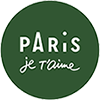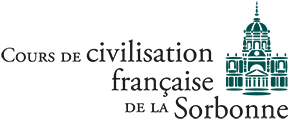Punctuation plays a crucial role in structuring and clarifying text in French. It helps to give rhythm to reading, specify the meaning of sentences, and guide the reader through written discourse. Adequate mastery of punctuation is essential for effective written communication. The CCFS offers an exploration of the main punctuation marks in French and their usage.
Periods
The Period
The period (.) marks the end of a declarative sentence. It signals to the reader that the statement is complete and allows for a transition to a new idea or sentence. For example:
- Punctuation is essential for effective communication.
Ellipses
Ellipses (…) indicate an interruption or an unfinished continuation of a sentence. They can express hesitation, suspense, or intentional omission. For example:
- I don’t know if I should… well, you understand.
The Question Mark
The question mark (?) ends an interrogative sentence. It turns a statement into a question and invites a response or reflection. For example:
- What is your favorite punctuation mark?
The Exclamation Mark
The exclamation mark (!) expresses strong emotion, an order, surprise, or an exclamation. It is used to enhance the impact of a sentence. For example:
- What an incredible surprise!
Commas and Semicolons
The Comma
The comma (,) has several functions. It separates items in a list, introduces subordinate clauses or parenthetical elements, and marks a slight pause in a sentence. For example:
- To write correctly, one must respect grammar, syntax, and punctuation.
Proper use of commas helps to rhythmically structure the discourse while facilitating understanding between interlocutors.
The Semicolon
The semicolon (;) is used to separate two independent but closely related clauses. It marks a pause longer than a comma but shorter than a period. For example:
- I love punctuation; it adds rhythm to writing.
Colons and Quotation Marks
The Colon
Colons (:) introduce an explanation, a list, or a quotation. They help to clarify and expand on an idea presented in the first part of the sentence. For example:
- There are three important types of punctuation: periods, commas, and quotation marks.
Quotation Marks
Quotation marks (« » or ” “) enclose quotations, dialogues, or highlight a particular word or phrase. They are essential for distinguishing quoted speech from the rest of the text. For example:
- He said: « Punctuation is the key to clarity. »
Parentheses and Dashes
Parentheses
Parentheses (()) enclose additional or digressive information that is not essential to the main sentence. They allow for extra details without interrupting the main flow of the text. For example:
- Punctuation (like parentheses) enriches the text.
Dashes
Dashes (– or —) can replace parentheses for more dynamic asides or introduce dialogues in a narrative text. They provide immediate clarity and precise structure to the sentence. For example:
- Punctuation – a fundamental element of writing – is often overlooked.
Specific Uses of Certain Punctuation Marks
The Hyphen
The hyphen (-) links compound words or groups of words. It helps to form compound terms and clarify the meaning of words. For example:
- A children’s book (a book intended for children) and a child book (a child book) do not have the same meaning.
The Apostrophe
The apostrophe (‘) marks the elision of a vowel and links two words. It is commonly used with articles and pronouns. For example:
- The apostrophe simplifies writing by avoiding consecutive vowels: l’arbre, c’est, l’été.
Brackets
Brackets ([ ]) add information or comments within a quotation or text. They are often used to insert clarifications or corrections. For example:
- He said: « Punctuation [is essential] for text clarity. »
Importance and Impact of Punctuation
Punctuation directly influences the readability and understanding of text. Proper use helps to structure sentences coherently, avoid ambiguities, and clarify the author’s intentions. For example, compare the following sentences:
- Let’s eat, kids!
- Let’s eat kids!
In the first sentence, the comma indicates that we are inviting the kids to eat. In the second, the lack of a comma completely changes the meaning, suggesting something much more alarming!











